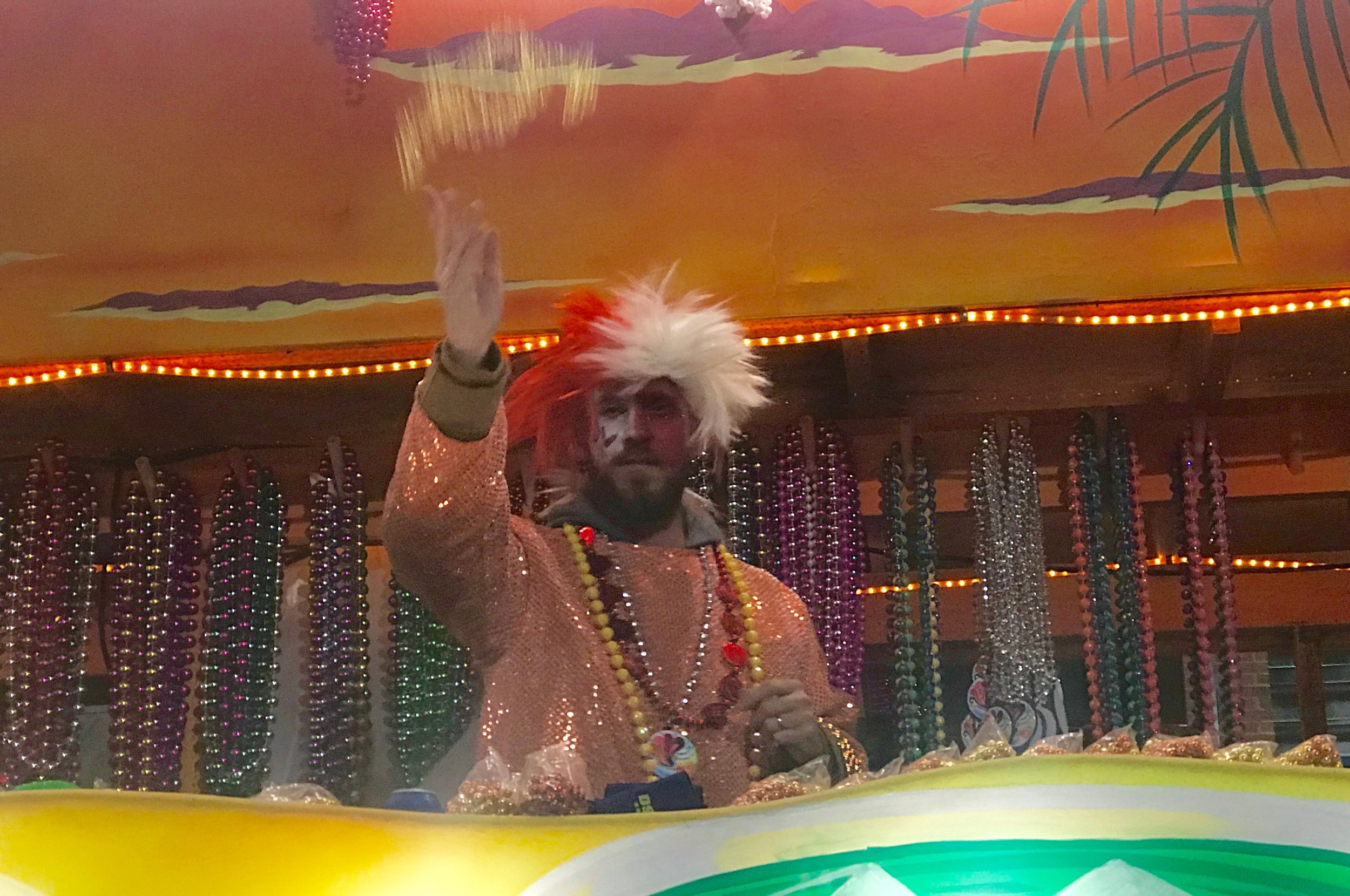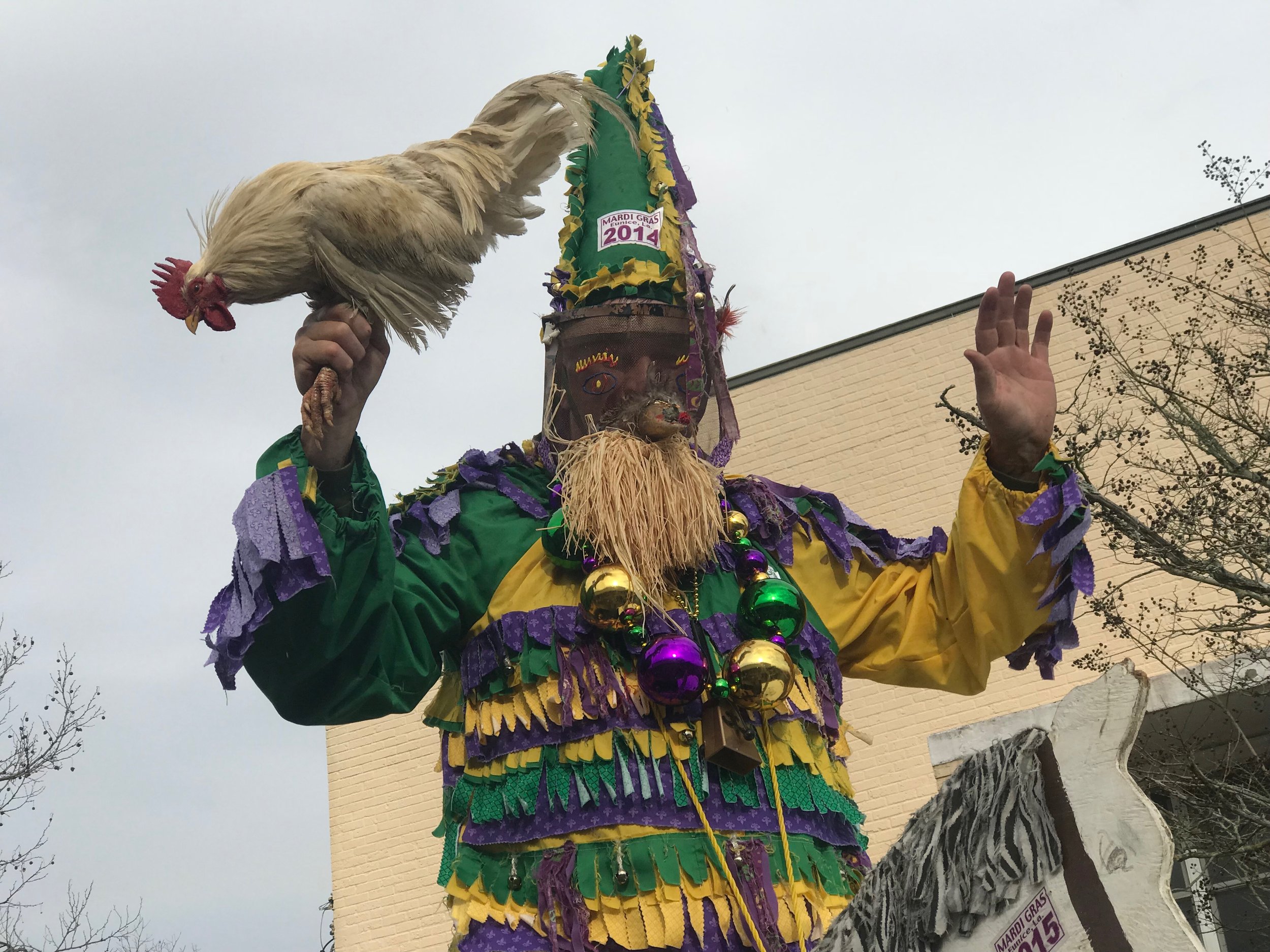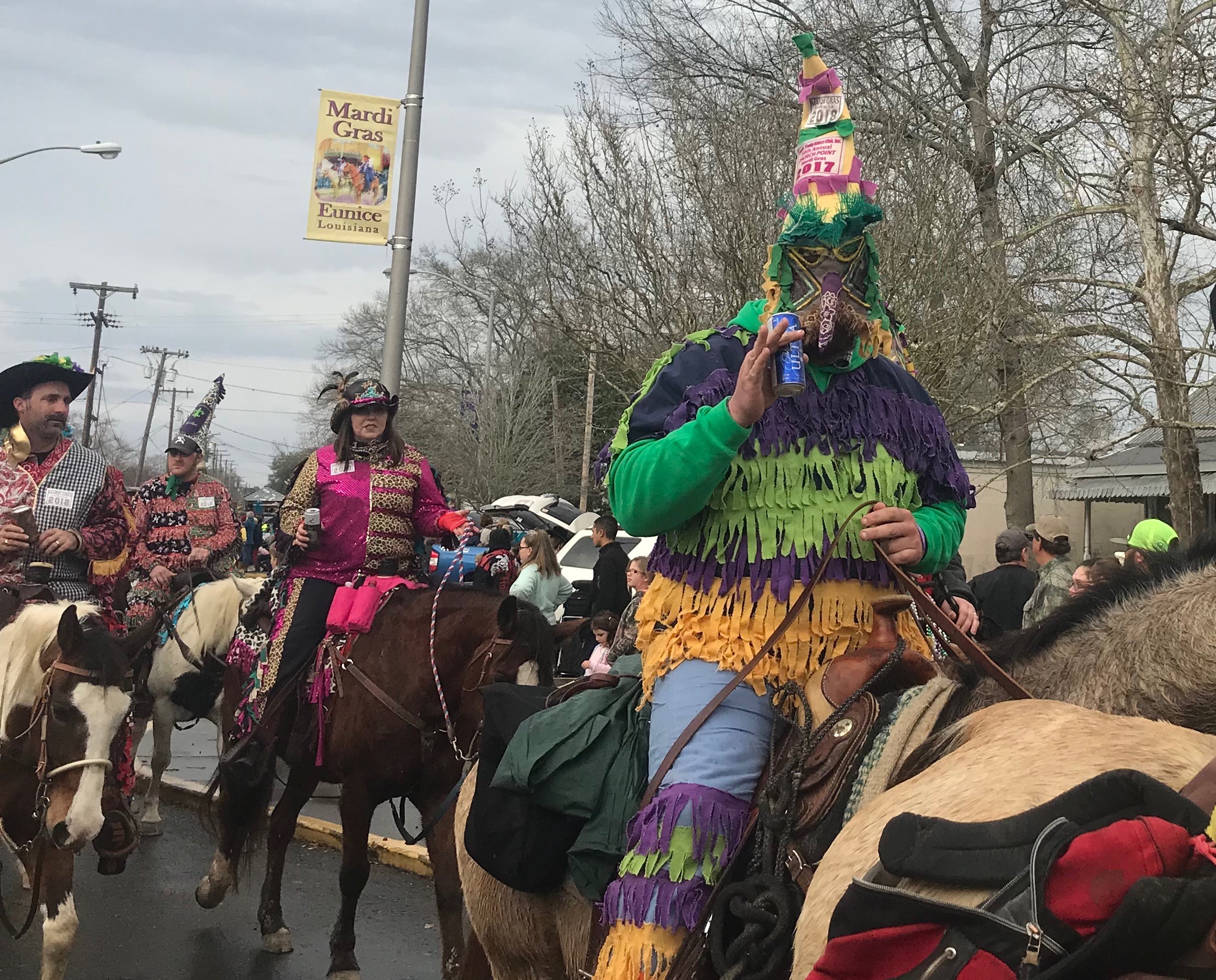More than Mardi Gras
Louisiana’s many flavors of American
By Rick Holmes
Feb. 16, 2018
Lafayette, La. – If there’s one thing Louisiana knows, it’s how to party.
Mardi Gras – “Fat Tuesday,” in Anglais – isn’t just a day here; it’s a season. Parades go on for weeks. The season has its own colors – green, gold and purple – and its own cake. Kids get Mardi Gras week off from school.
Mardi Gras is a big deal to the people who live here. It’s big business, worth $840 million last year to New Orleans alone. And it’s a big mess: The city pulled 93,000 pounds of Mardi Gras beads out of its storm drains after last year’s celebration.
“Laissez les bon temps rouler,” they say here. Let the good times roll.
Bourbon Street, in the heart of New Orleans’ French Quarter boasts of the biggest, bawdiest party. There’s a tradition of baring breasts in exchange for those silly beads. Bourbon Street has strip clubs, tattoo parlors, fine dining and great live music. And liquor. You don’t have to leave the sidewalk to buy a tall, potent cocktail in the go-cups that make it legal to drink and stagger at the same time.
That’s Bourbon Street year-round: Loud, fun, sexy and drunk. People come from all over the world to throw up on Bourbon Street.
But Louisiana is a lot more than Bourbon Street, and its culture is more than Mardi Gras.
Louisiana is a gumbo of cultures, some going back centuries. New Orleans is Creole, with African, Caribbean, Native American flavors and a lot of spice. That Out of that combination came incredible food and the miracle of jazz. Northern Louisiana is cotton country – black and white and rural. We stopped in Ferriday, hometown of famous cousins Jerry Lee Lewis, Mickey Gilley and the Rev. Jimmy Swaggart. It feels like a different country from New Orleans.
I spent most of my Mardi Gras season here in Cajun Country. This southwestern part of the state was first settled by French settlers in Acadia, now known as Nova Scotia and the Canadian Maritimes. They were exiled in 1655 by the British forces who had taken over eastern Canada and eventually found their way to Louisiana. Out of their origin story and the contributions of those who joined them in the swamps and prairies of Acadiana they forged a new culture, with a French-based language, music and cuisine all its own: Cajun.
On Fat Tuesday I joined the party in Eunice, a small town where the prairie Cajun heritage runs deep. People danced in light rain to a Cajun band – accordion, fiddle, bass and drums, singing traditional songs, many in French.
“Excusez, boss,” an older man said as he cut around me to get to the dance floor.
Yes, French is still spoken here, but it was almost wiped out by politicians who thought all Americans must look and sound alike, that minority cultures were some kind of threat. In the early 20th century, Louisiana made it illegal to speak French in public schools. Oil companies that took over the state’s economy demanded English only on the job. Cajun culture started to disappear.
But it rebounded, beginning in the 1960s, that era when American minorities of all types demanded inclusion and respect. The state Legislature created a new agency to reintroduce French into schools and encourage the preservation of traditional Cajun culture.
That culture is alive and well in Eunice. Like some other smaller communities, Eunice follows the Courir de Mardi Gras tradition, with elements that go back to medieval Europe. While costumes in New Orleans are all over the map, the ones worn in Eunice have a specific look: Handmade, they feature lots of raggedy fringe, tall pointed hats, and masks with pointy noses attached. Their floats are homemade as well, and often carry portable toilets, which I don’t think is an ancient tradition.
Some of the paraders engage in ritual begging, plunging into the crowd with their hands out, sometimes growling. The tradition says they are begging for food to be added to the community gumbo. Some of them carry live chickens, sometimes hurling them in the air. They also dance and drink beer and throw beads at people.
There are still some people who believe Americans should speak only English, who object to foreign influences, even those that go back hundreds of years. In national politics, Louisiana is pretty conservative. But Louisianans understand that diversity is a strength, not a problem. So let the good times roll.
Rick Holmes can be reached at rick@rickholmes.net. You can follow his journey at www.rickholmes.net. Like him on Facebook at Holmes & Co, on follow him on Twitter @HolmesAndCo.



